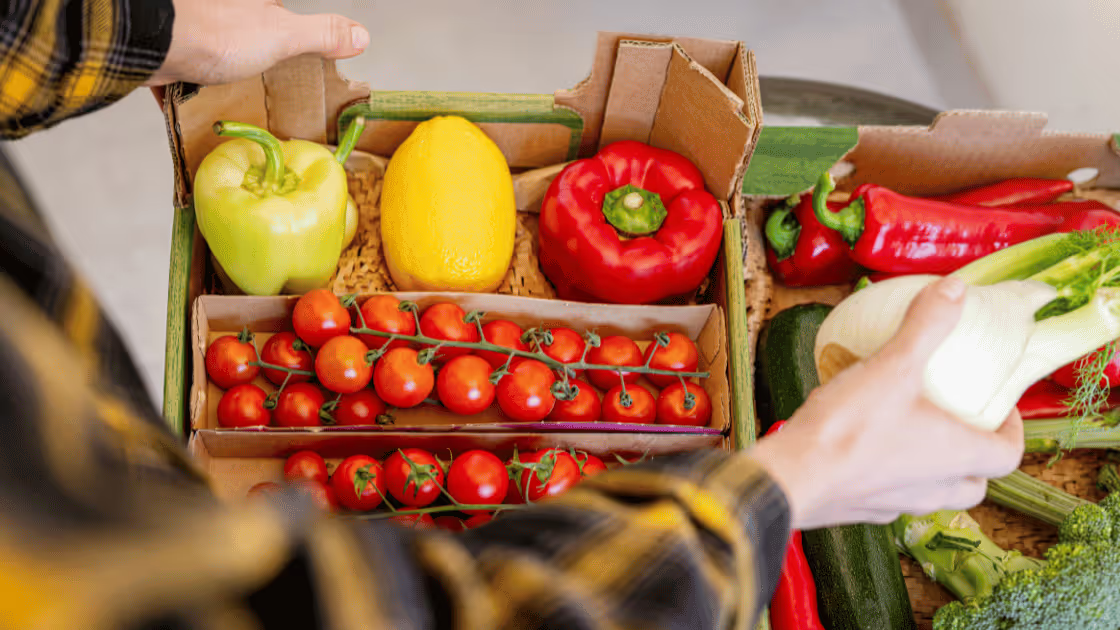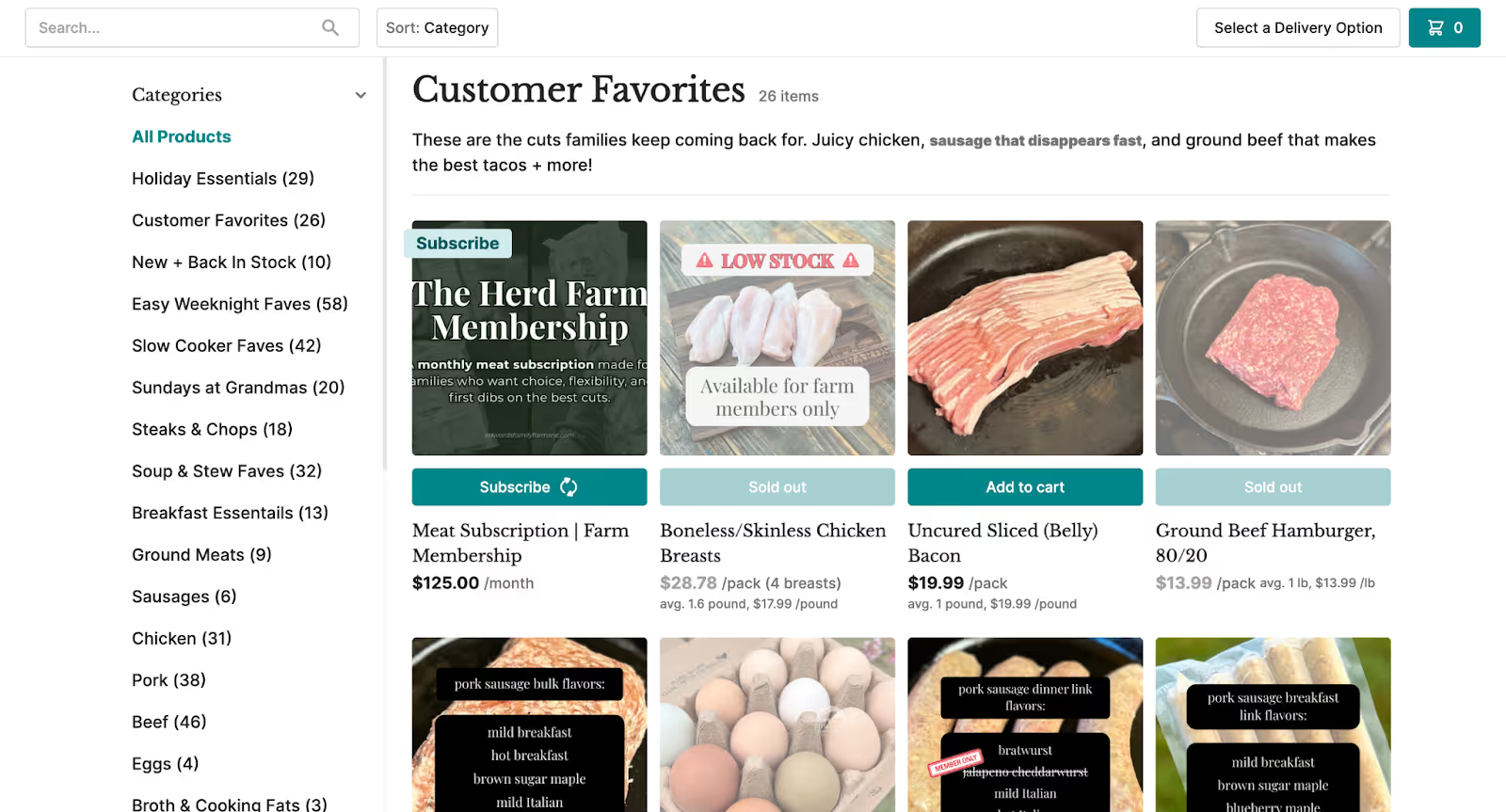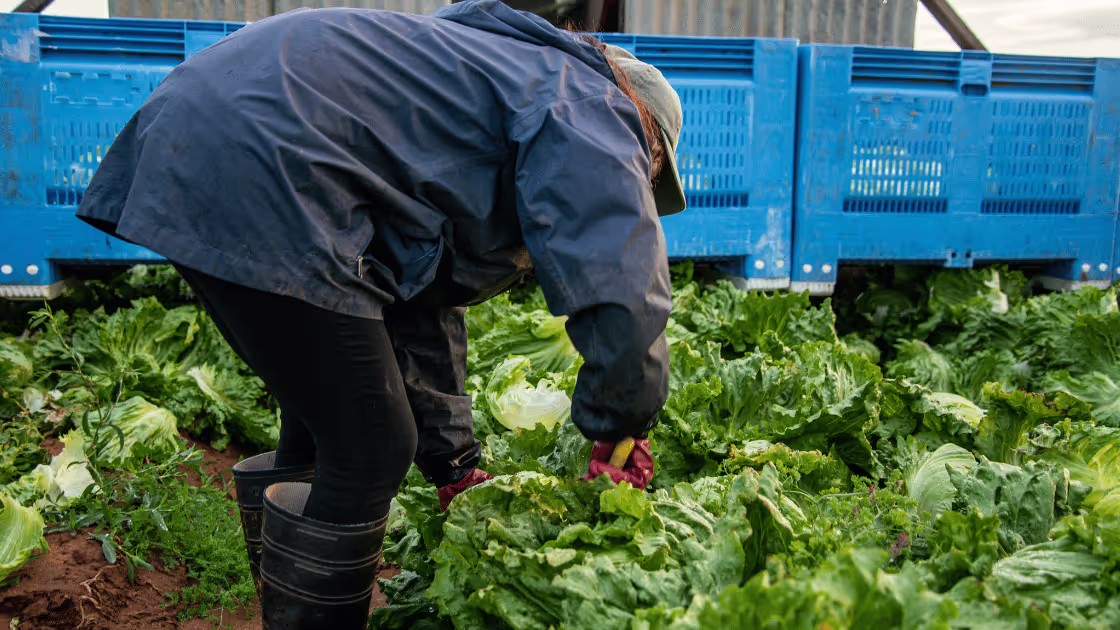Free Workshop | Farm Marketing Meets AI: Learn ChatGPT Workflows for Busy Farmers
.webp)
+1 (855) 699 1026

Farm subscriptions are quickly becoming one of the most important tools in modern agriculture. From weekly vegetable boxes to monthly meat shares and year-round CSA programs, subscription models provide predictable income, stronger customer relationships, and more efficient operations. As consumer expectations shift and direct-to-consumer sales continue to grow, more farms are turning to subscriptions to build stable, resilient businesses.
In recent years, consumers have become accustomed to subscription-based shopping experiences. They subscribe to streaming services, ready-made meal kits, curated boxes, and automated household deliveries. This same desire for convenience and predictability is now shaping how people buy food. Customers increasingly want consistent access to local products, the ability to customize their orders, and the reassurance that their favorite items will be available when they need them.
For farms, subscriptions address many long-standing challenges. They offer guaranteed recurring revenue, which allows producers to invest more confidently in crops, livestock, labor, and infrastructure. Subscriptions reduce last-minute ordering pressure, provide clearer production forecasts, and minimize waste. They also strengthen customer retention, since subscribers form deeper relationships with the farm and tend to purchase more frequently.
In short, subscriptions create benefits for both sides: customers enjoy convenience and reliability, while farms benefit from stability and efficiency. The result is a more sustainable business model, particularly for producers selling direct-to-consumer. The following examples highlight how three farms have successfully adopted subscription systems to grow revenue, improve operations, and build loyal communities.
Ontario, Canada
Coopers CSA Farm is one of Ontario’s longest-running and most recognized CSA programs. What began as a modest 50-member operation has expanded to more than 500 active members and over 700 subscribers. The farm offers a wide range of products, including vegetables, pasture-raised meats, baked goods, and maple syrup, making it a cornerstone of their local food community.
As their CSA membership grew, the administrative workload increased dramatically. Managing orders, delivery routes, box customization, and customer communications became increasingly complex. Steve and Lisa tried multiple software platforms over the years, including Farmigo and Harvie, but eventually needed a system that could support their scale while preserving the personal customer experience that had always defined their farm.
Their transition to Local Line marked a turning point. The onboarding team migrated their customer and order data, recreated their delivery zones, and ensured their store launched smoothly ahead of their busiest season. Customers immediately noticed the improvement. Ordering became faster, clearer, and easier to customize, which boosted both satisfaction and engagement.
Today, Coopers CSA runs 46 weeks per year, offering customers a highly flexible “choose-your-own-adventure” model that allows them to customize each delivery. With recurring orders supporting the foundation, customers can shop weekly, biweekly, or whenever it suits their needs.
The results have been significant. Their average order value exceeds $100, and more than 85 percent of customers place two or more orders per month. Customer satisfaction continues to rise, driven not only by the improved ordering experience but also by the Coopers’ exceptional communication. Lisa responds to customer inquiries the same day, and Steve sends a weekly farm update each Saturday morning, a simple message that consistently boosts sales by 20 percent. Their combination of strong systems and personal connection is central to their continued growth.
New South Wales, Australia
Branch & Burrow is a pastured livestock farm operated by Suz and Trent. What began as a small flock of laying hens has developed into a diversified operation producing pasture-raised eggs, chicken, pork, and lamb. With increasing demand and a tight family schedule, Suz needed a subscription model that would simplify operations and ensure predictable revenue.
Before adopting Local Line, Suz relied on WooCommerce, but it presented several challenges. The platform made selling variable-weight products difficult, inventory management was time-consuming, and it lacked the flexibility required for Australian currency and workflows. As a result, Suz often found herself working late into the night, trying to manually pack orders and keep her store updated.
Local Line provided the structure she needed. With subscriptions, Suz adopted a predictable monthly workflow: uploading inventory once a month, opening a members-only price list for her CSA subscribers, and then offering remaining inventory to the public. Orders now sell out within days of inventory being posted, and Suz can pack subscription boxes efficiently by household size and preference.
Her operations have become significantly more organized. She now completes double the number of orders in half the time. Reporting tools allow her to track product performance, plan upcoming production cycles, and manage payments, all without spreadsheets. Even with the international time difference, Suz describes support from the Local Line team as fast, helpful, and highly personalized.
Branch & Burrow’s experience demonstrates how subscription workflows can bring structure, predictability, and growth to farms of any size.
North Carolina, United States
Edwards Family Farms began with a simple goal: to provide better-quality eggs for their family. What started with a backyard flock quickly evolved into a regenerative farm producing pasture-raised chicken, pork, and beef. As the business expanded, Stacie, who manages the farm’s operations and marketing, recognized that her customers wanted consistency and early access to limited cuts.
Her first attempt at a subscription model, the “Chicken Club,” guaranteed customers could access high-demand cuts, but it became difficult to manage behind the scenes. She needed a system that rewarded loyalty while simplifying the administrative workload.
This led to the creation of the Herd Farm Membership, a tiered subscription-style program that provides early access to inventory, special pricing, and loyalty perks like apparel and cookware. To implement this model effectively, Stacie needed software that offered flexibility in product organization, pricing, and store layout.
Local Line’s tools provided exactly that. Stacie uses product variants to consolidate her inventory, organizes her online store into curated categories such as “Customer Favorites,” “DIY Chicken Broth,” and “Collagen Boosting Faves,” and uses merchandising strategies like price anchoring to increase average order value. The result is a storefront that feels intuitive, inviting, and easy for customers to navigate.
Since adopting Local Line, Edwards Family Farms has seen a 56 percent increase in sales, higher customer engagement, and significantly more streamlined operations. Stacie credits her growth to a combination of strong marketing, data-driven decision-making, and a system that keeps both her and her customers organized.
While Coopers CSA Farm, Branch & Burrow, and Edwards Family Farms operate in different climates, countries, and markets, they share a set of core practices that consistently predict subscription success. These habits go beyond software choices; they reflect a mindset focused on customer experience, operational excellence, and long-term sustainability. Farms that master these principles scale subscriptions with confidence and profitability.
A smooth, intuitive customer experience is at the heart of every successful subscription program. These farms understand that the easier it is for customers to shop, the more likely they are to return, subscribe, and stay subscribed.
Successful farms invest time in creating clean storefronts, logical product categories, and simple checkout flows. They understand that online shopping should mirror the ease of modern e-commerce, not feel like a complicated or outdated process. Clear communication also plays a major role. Weekly farm updates, transparent inventory information, and quick responses to customer questions all build trust.
The Coopers, for example, send consistent weekly updates that make customers feel connected to the farm. Stacie at Edwards Family Farms organizes her storefront into intuitive, themed categories to help customers shop faster and more confidently. These personal touches reduce friction, increase order frequency, and strengthen loyalty, key drivers of subscription retention.

Running a subscription model without structure can quickly become overwhelming. Successful farms avoid this by building systems that reduce manual labor and enable them to scale.
This often starts with setting predictable workflows. Many successful farms upload inventory on a weekly or monthly schedule, keeping customers informed about availability while making operations easier to manage. Automating recurring orders and setting clear fulfillment windows reduces last-minute changes, simplifies packing and delivery, and creates a rhythm customers learn to rely on.
Suz at Branch & Burrow exemplifies this approach. By moving from one-off orders to a predictable monthly cycle, she eliminated late-night packing sessions and now completes twice as many orders in half the time. Systemization frees farmers from routine administrative tasks, allowing them to focus on production, customer relationships, and long-term strategy.
Subscriptions generate powerful data: purchase behaviour, product demand, customer trends, seasonal patterns, and more. Successful farms actively use this data to shape their offerings, production planning, and marketing efforts.
Instead of guessing which items customers want, these farms analyze sales reports to understand what truly drives revenue. They look at average order value, retention rates, inventory turnover, and customer frequency. They make decisions based on real patterns, not assumptions.
For instance, Stacie monitors product performance to determine which cuts to feature, which bundles to create, and which items to restock more aggressively. Suz uses Local Line’s reporting tools to plan monthly production cycles and decide when to open pre-orders. The Coopers track which delivery routes generate the most activity and adjust their logistics accordingly.
Data creates clarity. Clarity leads to confident decisions. Confident decisions lead to growth.
Rigid subscription models often fail because customer needs aren’t one-size-fits-all. Successful farms build flexible systems that accommodate individual preferences, schedules, and ordering habits.
Flexibility can take many forms: customizable boxes, optional add-ons, skip-a-week options, multiple pickup or delivery choices, or tiered membership programs. These customizable features empower customers rather than leave them feeling obligated.
The Coopers operate a fully customizable “choose-your-own-adventure” CSA. Suz allows customers to subscribe, pre-order, or shop à la carte within the same system. Stacie designed a membership program that rewards loyal customers with perks and early access, allowing her to maintain flexibility while encouraging commitment.
This responsiveness to customer preferences transforms subscriptions from a rigid program into a personalized experience. Flexibility helps farms attract more customers, reduce churn, and support diverse household needs.
Perhaps the most fundamental commonality is the technology these farms rely on. All three operate their subscriptions, inventory, payments, and customer management through Local Line because it supports the complexities of selling food directly to consumers.
Farm e-commerce has unique requirements that traditional systems do not support, variable weight products, recurring orders, multiple price lists, inventory by cut or package, flexible fulfillment, and customer-based ordering cycles. Local Line is designed around these realities, making it possible for farms to automate recurring orders, keep inventory accurate, manage large customer lists, and adapt to a variety of subscription models.
With the right technology, farms gain the structure they need to scale. With the right workflows, they gain consistency. With the right customer experience, they build loyalty. And when all three pieces come together, subscriptions stop being a complicated administrative task and become one of a strong revenue driver in the business.
The farms highlighted in this article show what’s possible when strong systems, customer-first thinking, and the right technology come together. Local Line is the platform built specifically for farms that want to sell subscriptions with confidence. Whether you're launching a new CSA, expanding your meat subscription, or looking to streamline your weekly orders, Local Line gives you the tools to automate recurring sales, manage inventory accurately, and deliver a seamless customer experience.
If you’re ready to stabilize your revenue, reduce administrative work, and grow a loyal customer base, our team is here to help. Book a personalized demo today and see how Local Line can support the next stage of your farm’s growth.


